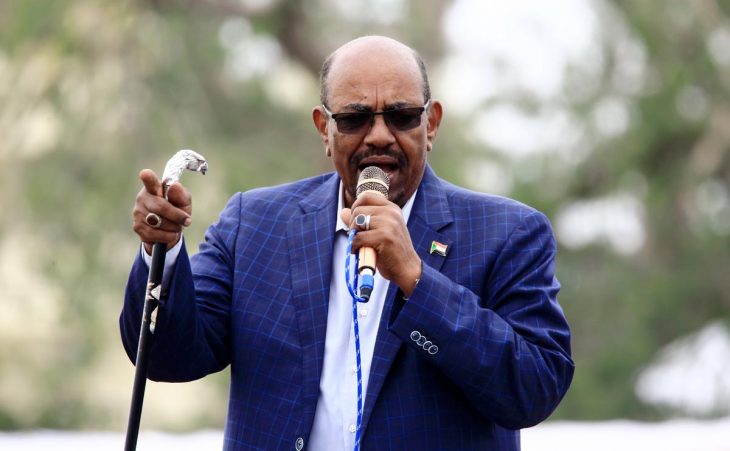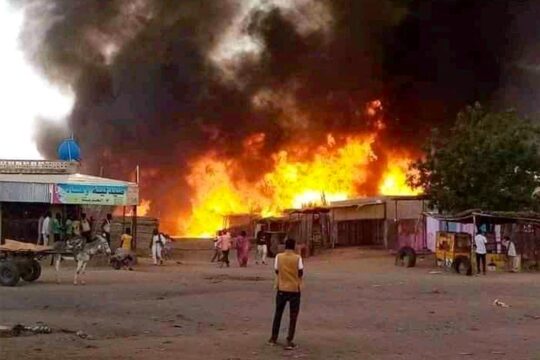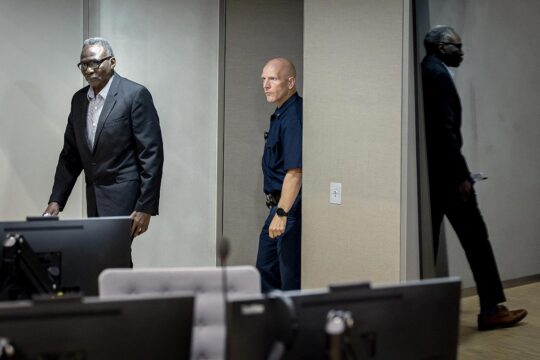The International Criminal Court (ICC) has been trying without success to take custody of Sudan’s Omar al-Bashir for more than a decade. In April, al-Bashir was removed from power, and in June he appeared before a Sudanese court on corruption charges.
Following al-Bashir’s fall, the ICC has reinvigorated its call for his extradition. This is fraught with danger, however, because it requires that the ICC cooperate with the men who have taken charge in Sudan, who are themselves deeply implicated in the very acts that al-Bashir is accused of. Such cooperation risks damaging the ICC’s reputation and legitimising a criminal regime.
Ten years ago the ICC indicted Sudan’s president Omar al-Bashir, together with four others, for the genocide in Darfur. But neither Sudan – nor any other state – would turn him over. In 2014, the ICC suspended its investigations in Darfur because neither Sudan nor the UN Security Council were co-operating. It was the Security Council that had referred the situation in Darfur to the court in 2005.
Even though the ICC has stopped its investigations in Darfur, the case against al-Bashir continued to trigger several political imbroglios for the court. Pressure on South Africa to arrest the visiting al-Bashir in 2015 led to the country’s near exit from the Court. The ICC ultimately determined not to punish South Africa’s non-cooperation.
Earlier this year the ICC Appeals Chamber issued its latest decision on questions involving noncooperation regarding al-Bashir, this time against against Jordan. Again the court articulated its right to try state sovereigns while determining not to sanction the uncooperative member state.
Thus before al-Bashir’s fall from power, his indictment had developed into a lose-lose situation for the Court and its proponents. On the one hand, the situation that prompted the indictment – the genocide in Darfur – was ongoing and unaddressed by the court. On the other hand, any action the ICC could take against al-Bashir was politically costly, continuing to weaken an institution already under threat.
From the frying pan into the fire
Late last year protesters began assembling in cities across Sudan, calling for al-Bashir’s resignation. Some were killed, others beaten and arrested. Nevertheless the Sudanese authorities also showed restraint, and stories of soldiers protecting protesters against security forces made international headlines.
In April, amid much celebration, al-Bashir was removed from power by a military council.
But the euphoria was short lived. In the two months since his removal, demonstrations have intensified, seeking to pressure the military council which deposed him to relinquish power.

This interim government is nominally led by Lt General Abdel Fattah al-Burhan, an unknown figure with experience fighting in Yemen and with ties to the Rapid Support Force, the paramilitary group responsible for ongoing atrocities in Darfur. But, real power is said to lie with his second in command, Mohamed Hamdan Dagolo (known as Hemeti whose forces now control Khartoum.
On June 3 Hemeti’s fighters killed more than 100 protesters and raped and sexually abused dozens of people. As Alaa Salah, the woman pictured in the iconic, April 2019 photo of peaceable Sudanese protests, told The New York Times,
For years Hemeti killed and burned in Darfur. Now Darfur has come to Khartoum.
Hemeti has contested the numbers but not the aim of the violence, saying,
We will not allow chaos and we will not go back on our convictions. There is no way back. We must impose the respect of the country by law.
For Sudan, for now, that seems to be the law of the armed and not the rule of law.
The question of prosecution
In May, prosecutors in Sudan announced that al-Bashir would be tried for corruption, financing terror, and for protest deaths. This answered concerns that a comfortable retirement was being planned for him.
But, conspicuously absent from the listed crimes are atrocities committed in Darfur and elsewhere – in other words the charges the ICC has laid against al-Bashir and four others. This means that local prosecutions will not address the international criminal law violations al-Bashir is accused of.
Against this backdrop, the ICC has now renewed calls for al-Bashir’s arrest. Speaking to the UN Security Council on 19 June 2019, the ICC prosecutor urged:
now is the time to act. Now is the time for the people of Sudan to choose law over impunity and ensure that the ICC suspects in the Darfur situation finally face justice in a court of law.
Her request is the immediate handover of al-Bashir and the four associates named in the 2009 arrest warrant.
But what would ICC prosecution of al-Bashir and his four associates mean, at this point?
In the present situation, the prosecutor’s articulation of “fighting impunity” rings hollow. This is because cooperation with the Sudanese government to try al-Bashir would mean cooperating with – even possibly legitimising – those who themselves have been implicated in genocide. This is a problem the ICC has faced, and failed, before.
Moreover, focusing resources on obtaining a post-power al-Bashir in the midst of ongoing atrocities by the governing authorities may strengthen a developing critique that the ICC is not objective and neutral, but rather political, pursuing foremost those who are not strong. The ICC’s recent determination not to move forward with investigations of US conduct in Afghanistan has bolstered this view.
The ICC asserts that it is “building a more just world”. But action that legitimises or strengthens authoritarian rule or criminal regimes does not serve that aim.
At this juncture, the ICC needs to ask itself a cost-benefit question: would the benefit of trying a defunct dictator who is already facing a future in jail override the detriment of legitimising a genocidal ruling authority? Is it worth getting your man, if you jeopardise your mission?![]()
Kerstin Carlson, Associate Professor International Law, University of Southern Denmark
This article is republished from The Conversation under a Creative Commons license. Read the original article.





